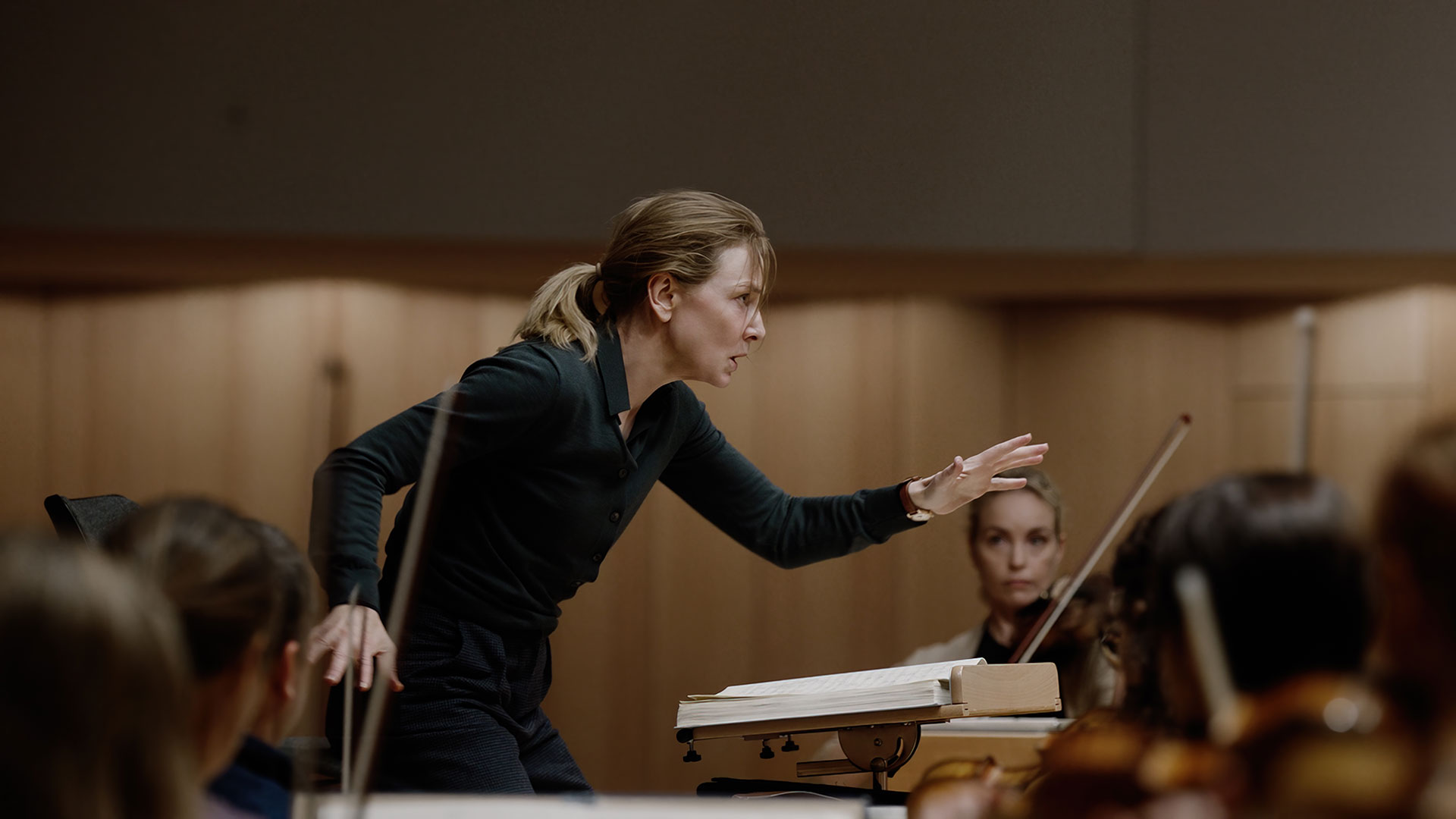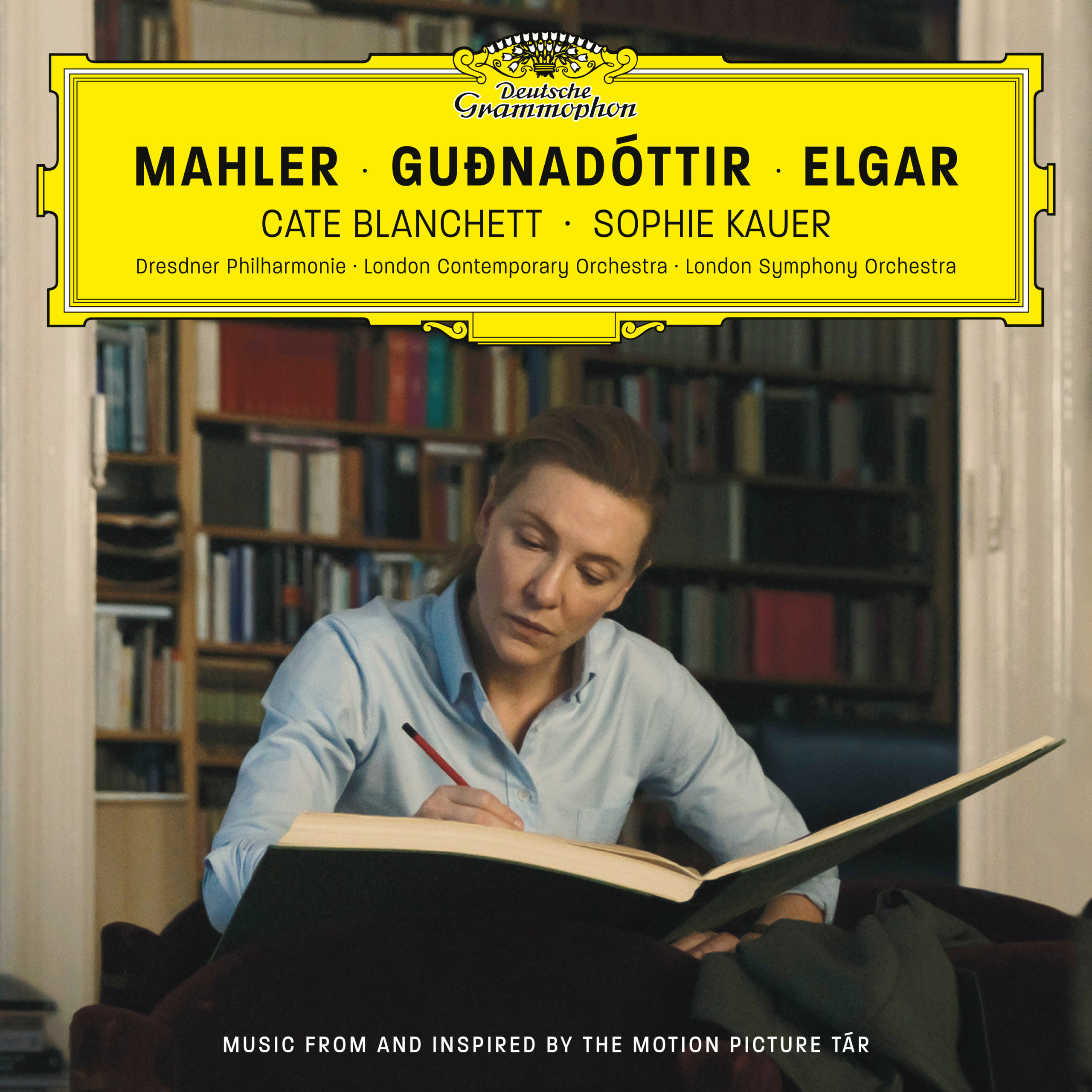Lydia Tár is giving the Berlin Philharmonic a briefing on Mahler’s Fifth Symphony. Her baton whips the air; the ensemble closely follows. The rehearsal gives an insider view on the internationally acclaimed – notorious, even – US conductor, whose accolades include Oscar, Tony, and Grammy awards. Scenes filmed in Tár’s industrial-chic Berlin apartment reveal intimate portraits of turbulent family life with her wife, Berlin Philharmonic’s concertmaster Sharon Goodnow and their young daughter. The detail in the documentary is exquisitely captured, from the rogue metronome in the music room to the footage of Tár running into the night and the ominous signs of abuse. Throughout the near three-hour film, spidey-senses tingle; we brood; all is not as it seems. Turns out, the Berlin Philharmonic is actually the Dresden Philharmonic. Despite the real-life setting and plentiful references to the classical music industry circa now – Tár is seen sending an email to Simon Rattle and discusses her mentor ‘Lenny’ Bernstein – the biopic is a fictional thriller, based on an entirely imaginary conductor.
Your support changes lives. Find out how you can help us help more people by signing up for a subscription
Or is it? Large chunks of Tár’s backstory appear to have been inspired by that of Marin Alsop, the American musician who was a notable Bernstein student, and went on to become the first female conductor to appear in the Last Night of the Proms in 2013. Unlike Tár, however, Alsop has never been accused of professional misconduct. In the film, it becomes clear that Tár has groomed multiple women. One victim, finding it impossible to continue her career after Tár instructs other orchestras not to hire her, dies by suicide. Understandably, Alsop has tried to distance herself from the film, telling The Times: “I’m offended by Tár as a woman, as a conductor, as a lesbian.”
Casting a female conductor as a predatory Weinstein figure has divided opinion. There is a view – expressed by Alsop, among others – that to portray a woman in a role that has traditionally been seen as a male domain and make her an abuser is dangerously limiting.
It is difficult enough for women and non-binary musicians to become conductors – it was only two years ago that Vasily Petrenko – then chief conductor of the Liverpool Philharmonic Orchestra – let slip in an interview that he believed ensembles “react better when they have a man in front of them”. Just to ensure the bomb had been properly detonated, he added: “A cute girl on a podium means that musicians think about other things.”
In subsequent years, as PR machines went into overdrive, some meaningful change was achieved: conducting fellowships such as English National Opera’s encourage diversity, and Opera North offers an annual nine-week traineeship for a female conductor (currently held by Josephine Korda, who was guest conductor at Marin Alsop’s Women’s Conducting Masterclass held at the Southbank last year). But unlike in Tár, there is yet to be a female chief conductor of the Berlin Philharmonic.










